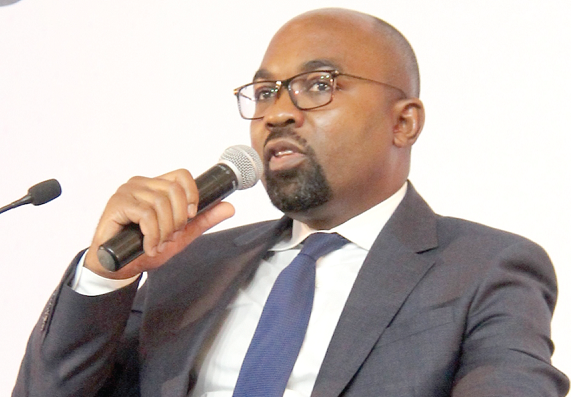
IMF lauds government for reducing ministries
The International Monetary Fund (IMF) has commended the government for reducing the number of ministries in response to public concerns and the state of public finances.
The fund said the action was the “right example” and amounted to the government “tightening its belt" under a fiscal consolidation exercise that was expected to span this year and 2025.
Advertisement
The Resident Representative of the IMF in Ghana, Dr Albert Touna Mama, said in response to the Daily Graphic's questions that the government could now consider a freeze in pay increases for members of the Executive arm.
"As I mentioned, consolidation is necessary to put public finances back in shape and contain the current strong increase in debt. In addition, the government is setting the right example by tightening its belt with the reduction in the number of ministries and possibly a pay rise freeze for its Executive arm," he said.
The Daily Graphic had sought the views of the fund on Ghana's management of the COVID-19 pandemic, its impact on public finances and economic growth, the state of the debt stock and how to get around it, the role of the fund in economic management following the completion of the extended credit facility (ECF) programme in 2019, among others.
From 36 to 29
The commendation from the fund came at a time when the number of ministries under President Nana Addo Dankwa Akufo-Addo’s second term has been reduced from 36 in the first term to 29.
The President said the move followed the completion of the tasks assigned to the specialised ministries that were created in his first tenure.
In addition to the reduction in ministries, President Akufo-Addo also signalled a reduction in Executive appointments when he announced that regional ministers would not have deputies.
That has brought down the number of Executive representatives at the regional level from 26 under the President's first term to 16 under the term that began on January 7, this year.
Non-productive expenditures
The IMF Resident Representative said the cut in the number of ministries and other non-productive expenditures would help check fiscal deficit and slow down debt accumulation.
While the fiscal deficit ended last year at 15.6 per cent of gross domestic product (GDP), when the energy sector and the financial sector clean-up costs are added, the debt stock peaked at GH¢291.6 billion, equivalent to 76.1 per cent of GDP in the same period.
In spite of the advocacy for a reduction in spending, Dr Mama said critical expenditures, such as those on education, health and social protection, should not be affected.
BoG's concerns
Commenting on the fiscal consolidation programme contained in the 2021 Budget, Dr Mama said he shared in the concerns of the Bank of Ghana (BoG) that the integrity of the budget was largely tied to revenue estimates.
He said the concerns of the central bank, which were contained in the March Monetary Policy Committee press statement, were "genuine".
"The composition of fiscal consolidation, whether spending-based or tax-based, is important. There is merit in reviewing all public expenditure, with the view to rationalising them and improving their efficiency.
"In fact, one desirable outcome at the end of this programme will be to reduce spending rigidities in the budget.
"One caveat is that spending on education, health and social protection ought to be safeguarded. This is also a way to avoid imposing undue burden on the less well-offs in society during fiscal consolidation," he added.
Growth target
On growth, the IMF Resident Representative said the fund expected the economy to grow at 4.6 per cent this year, lower than the government’s target of five per cent.
According to him, the main challenge to economic activity in the near term was the new wave of COVID-19 spread and the pace of the mass vaccination exercise.
He said Ghana had done comparatively well on both fronts and expressed the hope that the expected rebound in many sectors that had slowed down in 2020 should make growth stronger this year.
Domelevo
Commenting on the retirement of Mr Daniel Yaw Domelevo in March, Dr Mama said it was important that the Audit Service remained "a strong institution and follow up on the outstanding reports”.
"Two tasks will further test that strength: the audit of arrears incurred in 2020 and the audit of the emergency spending related to the coronavirus disease crisis. We all know the system is not yet perfect and we all thrive to improve it.
"After all, a good audit of the state’s money is also part of the fiscal consolidation efforts, besides being a critical piece of the management of public finance processes," he said.





